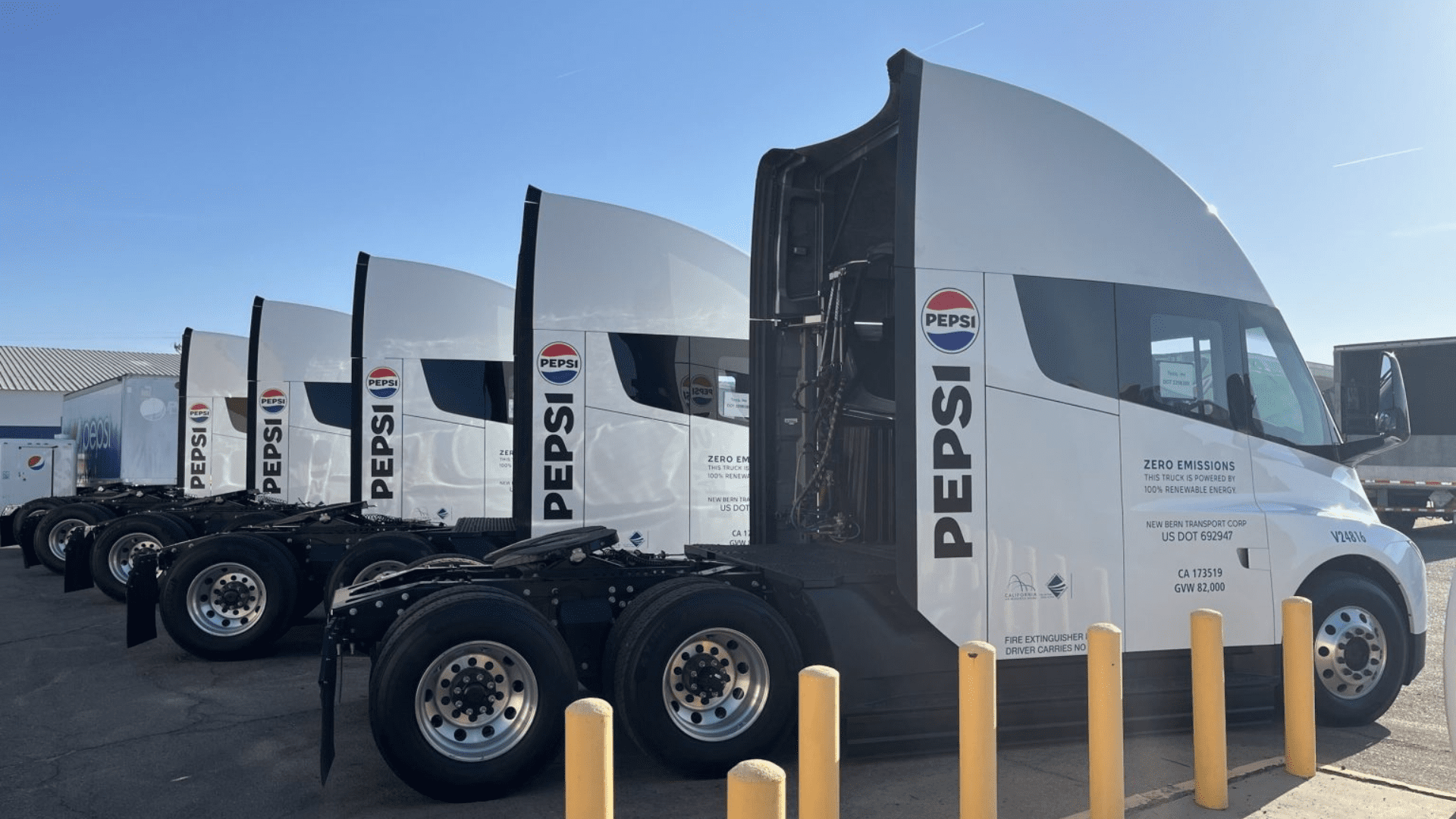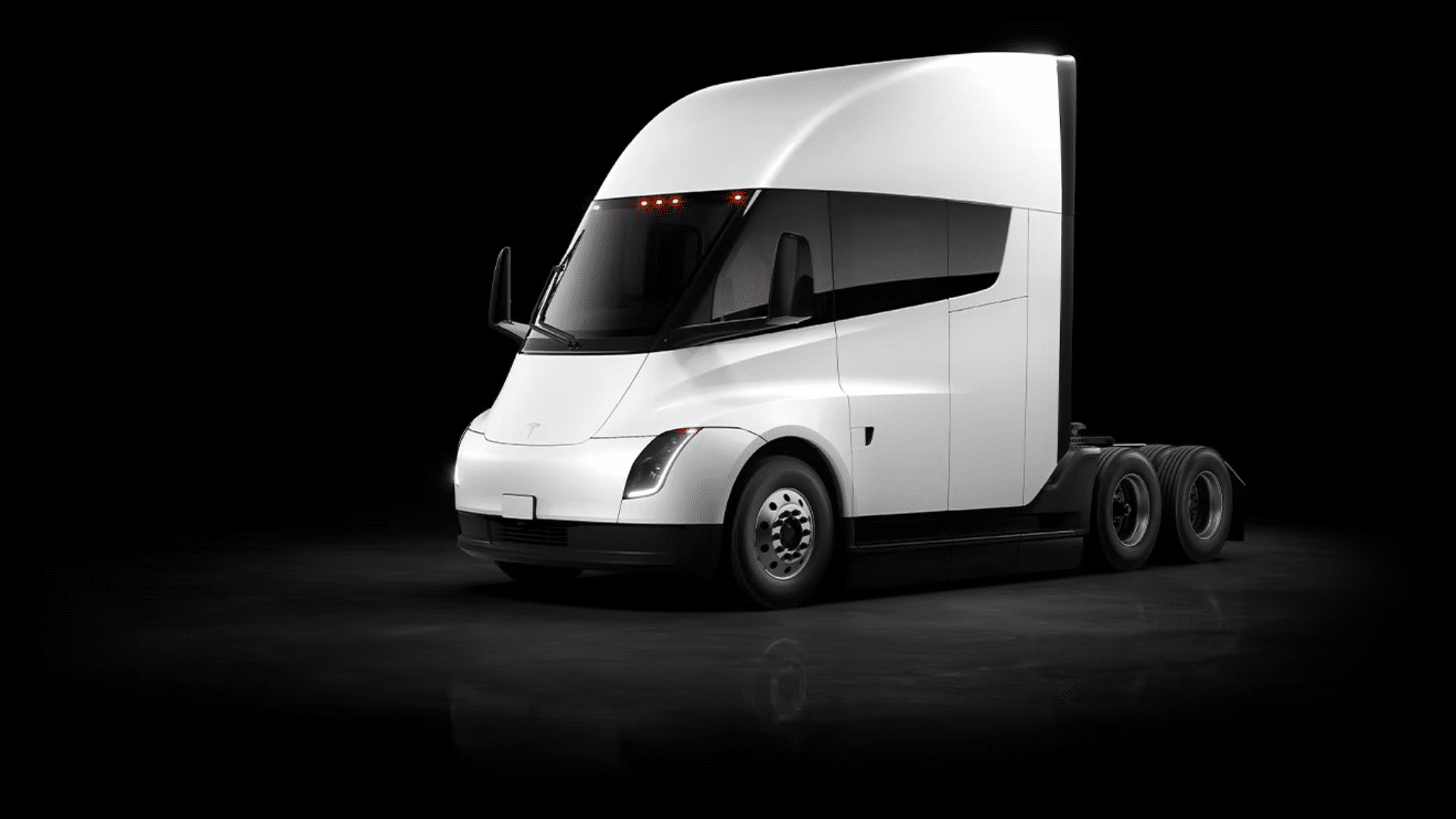Tesla is planning to ramp up production on its electric semi-truck after facing some serious delays. In addition, Tesla plans to increase semi-truck deliveries to its main customer, PepsiCo.
Tesla Semi

The Tesla Semi was originally revealed in 2017 and was supposed to come into production in 2019. However, it began production in 2022 and has been extremely limited since. For over a year, only Tesla and PepsiCo have used electric semi-trucks. According to Electrek, more customers are using the electric vehicle. The site reported seeing companies Martin Brower and Sysco using the Tesla Semi. Additionally, the site learned that Walmart and Costco got their hands on them for testing earlier this month. However, Tesla still produces semi-trucks in low volume.
Tesla announced plans for a higher production volume late next year and increased deliveries by 2026. For now, PepsiCo remains Tesla’s main customer for electric semi-trucks.
Explore Tomorrow's World from your inbox
Get the latest science, technology, and sustainability content delivered to your inbox.
I understand that by providing my email address, I agree to receive emails from Tomorrow's World Today. I understand that I may opt out of receiving such communications at any time.
Tesla Semi Advantage

Dan Priestly is the head of the Tesla Semi program and discussed the status of the program at the ACT Expo in May. During that discussion, Priestly addressed the well-known delays. “I think that there are some narratives that seem to think that electric heavy trucking is still impossible. You might hear someone say that it’s really hard,” said Priestly. “Well, guess what, it is really hard. We’ve been doing it, but it is absolutely worth doing, and we do not enter this industry lightly.”
While Tesla isn’t the only car manufacturer working on electrifying the truck industry, they believe they have an advantage with a dedicated electric platform. This isn’t always the case, especially with legacy truckmakers. The Tesla Semi has a 500-mile range and megawatt charging. Because of this, Priestly says the electric semis can easily be swapped with a diesel truck. “What this does is it unlocks the operational equivalence between diesel and electric. There’s none of these ratios that you need extra electric trucks do the same amount of work that diesels do,” said Priestly. “They can swap one for one in operations.”
Charging
In May, Elon Musk let the entire charging team go. However, Priestly reassured the trucking industry at ACT that they are still dedicated to charging. According to Priestly, Tesla plans to deploy its Megachargers for trucking.
“To be very clear, charging is core to Tesla. This year, we are investing more than $500 million in new supercharger stations, expanding the network,” said Priestly. “We are committed to providing our customers with a great supercharging experience and we’re going to extend that exact same train of thought into the heavy-duty side as well.”
While Tesla deployed Megachargers at the PepsiCo facilities, they have not yet made a public deployment like the Superchargers.







